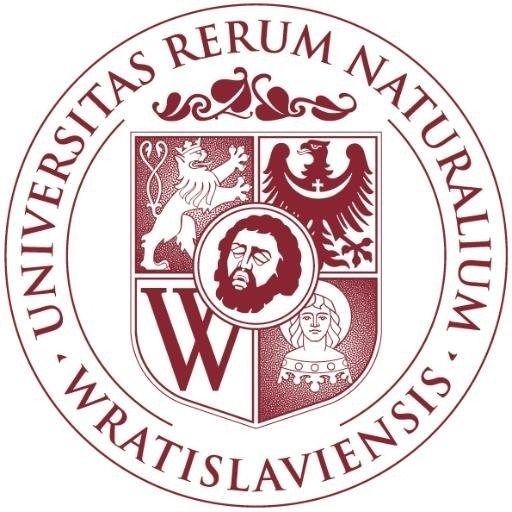Photos of university / #umktorun
The Environmental Protection program at Nicolaus Copernicus University is dedicated to preparing students to address the complex challenges faced by our planet’s ecosystems and contribute to sustainable development. This interdisciplinary degree combines natural sciences, engineering, policy analysis, and social sciences to provide a comprehensive understanding of environmental issues, their causes, and possible solutions. Students will gain knowledge in areas such as ecology, water and air quality management, waste management, renewable energy, environmental law, and public policy. The program emphasizes practical skills, including environmental impact assessment, monitoring techniques, data analysis, and project management, enabling graduates to effectively participate in environmental protection initiatives, research, and policy-making. Moreover, students have the opportunity to engage in fieldwork, internships, and collaboration with environmental organizations, fostering real-world experience and professional development. The curriculum is designed to adapt to the rapidly changing landscape of environmental science and technology, incorporating the latest research and innovative practices. Graduates of this program will be well-equipped to work in governmental agencies, non-governmental organizations, consulting firms, research institutions, and private companies committed to sustainable practices. The program also encourages interdisciplinary thinking and promotes a global perspective on environmental issues, preparing students to contribute to international efforts in combating climate change, conserving biodiversity, and ensuring a healthier future for all. With a strong emphasis on research, ethics, and social responsibility, the Environmental Protection program at Nicolaus Copernicus University seeks to develop competent professionals who are dedicated to protecting the environment and promoting sustainable development at local, national, and global levels.
The Environmental Protection program at Nicolaus Copernicus University offers a comprehensive curriculum designed to equip students with the knowledge and practical skills necessary to address contemporary environmental challenges. This interdisciplinary program covers a wide range of topics, including ecology, environmental policy, sustainable development, pollution control, and natural resource management. Students will explore the scientific principles underlying environmental processes and gain hands-on experience through laboratory work, field studies, and project-based learning. The program emphasizes the importance of integrating scientific research with policy and social considerations to develop effective solutions for environmental problems. Throughout their studies, students will also learn about environmental legislation, international conventions, and the role of NGOs and governmental agencies in shaping environmental strategies. The curriculum includes modules on climate change mitigation and adaptation, waste management, water and air quality, renewable energy sources, and environmental ethics. The program is designed to prepare graduates for careers in environmental consultancy, conservation organizations, governmental agencies, research institutions, and international organizations working towards sustainable development. Additionally, students will develop critical thinking, problem-solving, and communication skills vital for effective environmental advocacy and policy implementation. Practical training and internships are integral parts of the program, providing real-world experience and fostering professional networks. Graduates of the Environmental Protection program will be well-equipped to contribute to the protection and sustainable management of our planet’s natural resources, ensuring a healthier environment for future generations.
BA, MA degree or equivalent and a certificate of English language competence
Tuition fees for the Environmental Protection program at Nicolaus Copernicus University vary depending on the level of study and the student’s nationality. For non-European Union students, the annual fee ranges approximately from 2,000 to 4,000 euros, depending on the specific course modules and whether the program is delivered in Polish or English. EU students benefit from lower tuition fees, typically around 1,500 to 2,500 euros per year. Financing options include a variety of scholarships, grants, and student loans. Nicolaus Copernicus University offers scholarships for both Polish and international students based on academic merit, financial need, and specific criteria related to the student’s country of origin. These scholarships may cover partial or full tuition fees and sometimes provide additional stipends for living expenses. Additionally, students have access to government grants for international students, which can significantly reduce the financial burden. External funding sources, such as Erasmus+ program, allow students to participate in exchange programs with partner universities across Europe, often providing financial support for mobility and exchange periods. Many students also finance their studies through part-time work opportunities available on campus or in the local Toruń area, including research assistant positions, administrative roles, or tutoring. The university’s international office provides guidance on scholarship applications, financial planning, and legal advice related to student finances. Early application and adherence to scholarship deadlines increase the likelihood of obtaining financial aid. Furthermore, students can consider private loans from financial institutions, although these are less common and require careful consideration of repayment terms. Cost of living in Toruń is relatively affordable compared to larger Polish cities, which can help reduce overall expenses during studies. All these funding opportunities aim to support students in pursuing their education without undue financial hardship, ensuring access to quality environmental protection education at Nicolaus Copernicus University regardless of financial background.
This program in Environmental Protection at Nicolaus Copernicus University offers students a comprehensive education in the principles and practices necessary to address environmental challenges. The curriculum encompasses a wide range of topics, including ecology, biology, chemistry, geology, and management, preparing graduates to work in various sectors such as environmental consulting, governmental agencies, and non-governmental organizations. Students learn about pollution control, waste management, sustainable development, and conservation techniques, equipping them with the skills needed to develop and implement strategies that protect natural resources and promote environmental sustainability. The program emphasizes practical training through laboratory work, field studies, and internships, providing students with hands-on experience in real-world environmental issues. The teaching staff consists of experienced researchers and practitioners committed to fostering a multidisciplinary understanding of environmental protection. Additionally, students have access to modern laboratories and research facilities that support advanced study and innovation. The program encourages critical thinking, problem-solving, and communication skills essential for effective environmental management. Graduates are well-prepared to pursue careers in environmental assessment, policy-making, environmental education, and scientific research. The program also promotes international collaboration and awareness of global environmental issues, ensuring students are informed about sustainable practices worldwide. Overall, the Environmental Protection program at Nicolaus Copernicus University aims to educate responsible professionals dedicated to safeguarding the environment for future generations.










